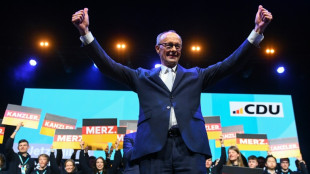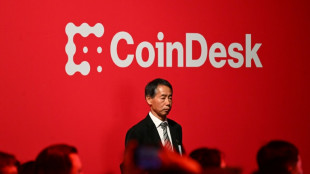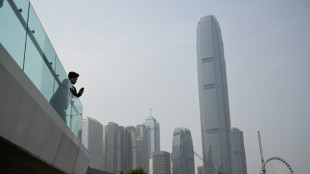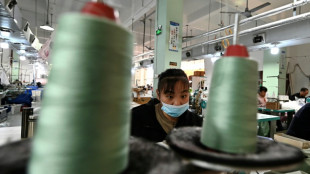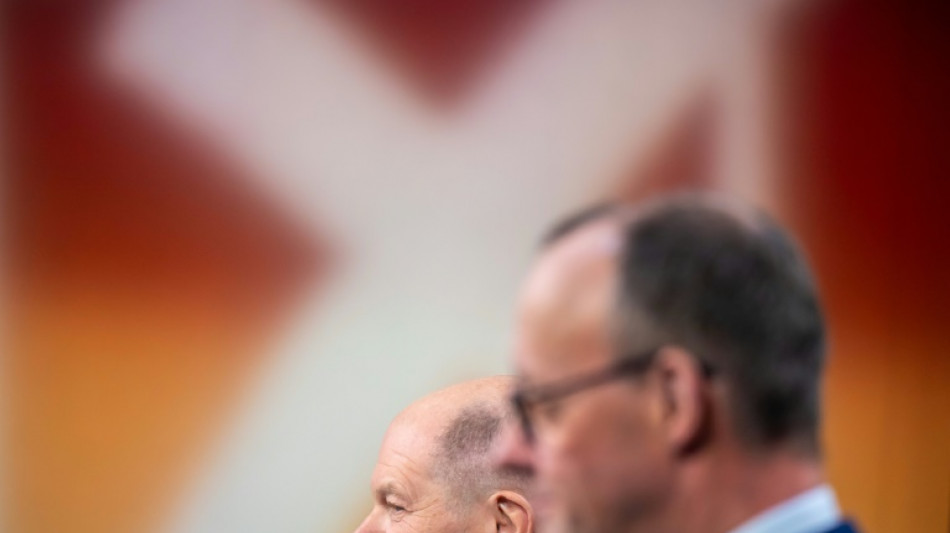

Top issues in Germany's election campaign
From immigration and Germany's ailing economy to cannabis and gender politics, here is a round-up of the burning issues on voters' minds in the run-up to Sunday's election.
- Immigration -
After a series of deadly attacks blamed on asylum seekers shook Germany, conservative poll frontrunner Friedrich Merz has proposed a crackdown on irregular immigration.
In a clear break with his CDU party's more centrist former chancellor Angela Merkel, Merz wants all undocumented foreigners to be turned away at the border, including asylum seekers.
He also wants to restrict family reunification and make it harder to obtain German citizenship.
Chancellor Olaf Scholz has accused Merz of trying to "bury Europe" with his plans.
But Scholz's SPD has also pledged to tighten border controls and speed up deportations -- albeit in a way he describes as more "humane and consistent".
The far-right AfD has called for a "bulwark" against illegal migration -- promising to monitor Germany's borders day and night and slash benefits for asylum seekers.
- Ukraine war -
Three years since Russia's invasion of Ukraine, Germany has been the second biggest military backer for Kyiv after the United States.
The mainstream parties have pledged continued support even as US President Donald Trump has thrown the Western alliance into turmoil with his direct outreach to Russia.
Scholz and Merz have different views on what weapons to send to Ukraine.
Merz wants Germany to supply Taurus missiles capable of striking deep into Russian territory, while a more cautious Scholz has warned this would mean playing "Russian roulette".
Three other parties -- the AfD and the far-left Die Linke and BSW -- have called for an end to all arms deliveries to Ukraine.
The SPD, CDU/CSU and Greens have all voiced willingness to increase military spending above NATO's target of two percent of GDP.
- Fiscal policy -
Mired in recession, Germany is seeking to repair its ailing economy, raising questions on how it can pay for new investment in creaking infrastructure, defence and the green energy transition.
For the SPD and the Greens, the answer lies in lifting the so-called debt brake -- a constitutional rule that limits annual structural deficits to 0.35 percent of GDP.
The conservatives have shown signs of openness on the issue, but are more focused on corporate tax cuts and reducing jobless benefits for those resisting a return to work.
Merz -- who once famously argued that a tax return should fit onto a beer coaster -- has also vowed to slash back bureaucracy and red tape.
Scholz has proposed income tax cuts for 95 percent of households, the reintroduction of a wealth tax and higher inheritance tax.
- Energy and climate -
Policies such as weaning Germany off Russian gas, shuttering nuclear power plants and winding down coal have sparked bitter divisions in Germany.
To help the beleaguered car industry, the CDU/CSU wants to reverse a planned European ban on combustion engines from 2035.
It also wants to study a return to atomic power.
The conservatives also want to row back a much-maligned law pioneered by the Greens to encourage the installation of renewable heating systems.
The Greens have promised a climate allowance to compensate citizens for higher heating and energy prices.
The AfD, meanwhile, has denied climate change, and its leader Alice Weidel has labelled wind turbines "windmills of shame".
- Culture wars -
The conservatives and AfD have promised to row back several progressive laws passed by Scholz's coalition -- beginning with the legalisation of cannabis.
The CDU/CSU claims this has led to "violent gang warfare", while advocates of legalisation say it has helped curb the black market.
In a broadside against what they call "woke" culture, the conservatives and AfD have also pledged to cancel reforms that have made it easier for people to change their legal gender.
T.Murphy--MP

